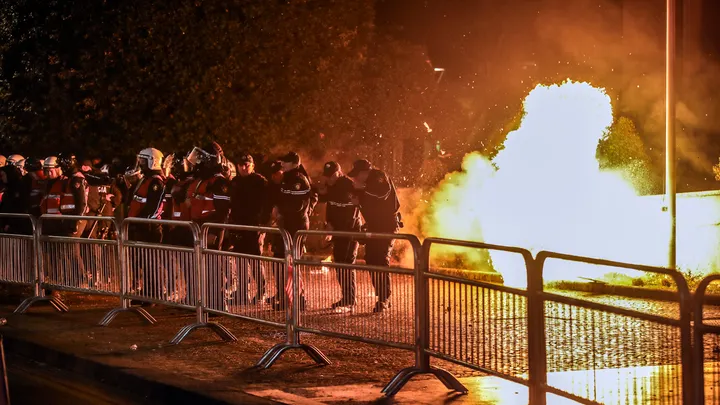Thousands of Albanians took to the streets of Tirana in a large-scale demonstration against the ruling Socialist government, accusing it of widespread corruption and governance failures. The protest saw participants engaging in civil disobedience, including throwing stones and flares at law enforcement and dismantling barriers around key government buildings. This public display of dissent not only underscored the deep-seated political rifts between the ruling Socialists and the opposition Democrats but also coincided with a significant historical milestone – the 33rd anniversary of the fall of communist dictator Enver Hoxha’s statue, marking a pivotal moment in Albania’s journey towards democracy.
The origins of the current unrest trace back to October, with opposition members consistently disrupting parliamentary proceedings. Their grievances stem from the Socialists’ steadfast refusal to establish committees tasked with probing into alleged corrupt practices involving Prime Minister Edi Rama and other senior officials. The tension was palpable during Tuesday’s demonstration, which also served as a platform for expressing solidarity with Sali Berisha, a former prime minister and a prominent opposition figure currently under house arrest. Berisha, facing allegations of misusing his authority for familial gain, addressed the crowd remotely, accusing Prime Minister Rama of engaging in corruption and undermining Albania’s European integration efforts.
However, internal divisions within the opposition bloc somewhat marred the protest’s unity. A faction of the Democratic Party abstained from participating, criticizing Berisha for using the event to further his agenda and bolster his dwindling support base. This criticism gains context from the international community’s stance on Berisha, with the United States and the United Kingdom imposing entry bans on him and his immediate family due to corruption charges.
The protest in Tirana manifests Albania’s fraught political landscape, marked by allegations of corruption, intra-party divisions, and a populace eager for reform and accountability. As the nation grapples with these challenges, the path forward remains uncertain, with the potential for further unrest and the pressing need for dialogue and reconciliation.







